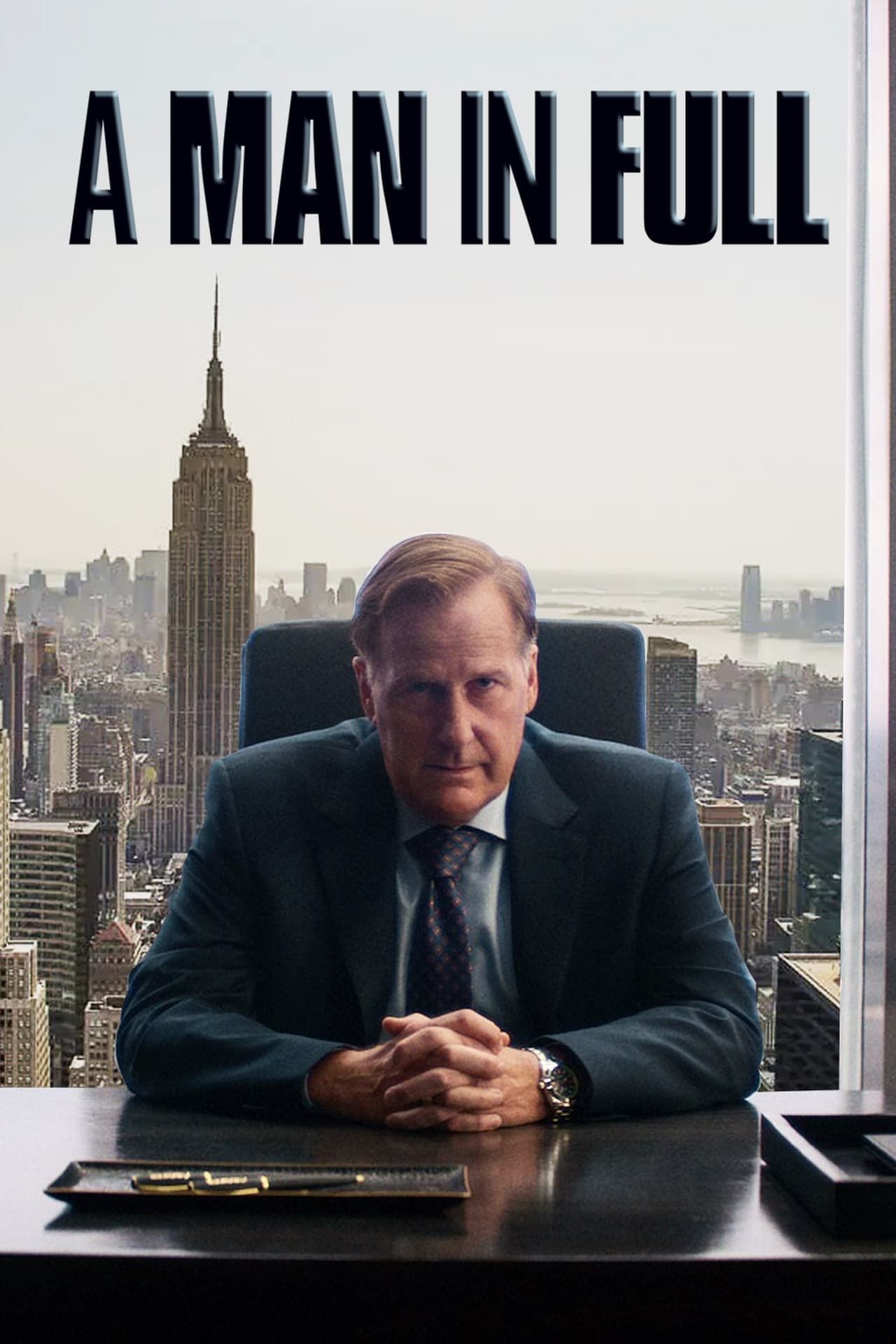Editor’s Note: The following contains spoilers for A Man in Full series.
The Big Picture
-
A Man in Full
portrays realistic corporate greed without the traditional “eat the rich” attitude. - The series modernizes social issues, like police brutality and the MeToo movement, in a fictional Atlanta setting.
- The Netflix series diverges significantly from the 1998 novel by Tom Wolfe, particularly in the loud and boisterous ending.
As Jeff Daniels dons a thick Southern drawl and crisp suit and tie in Netflix’s limited series, A Man in Full, it is easy to believe that the show is based on true events. From the grounded story to the clean cinematography, A Man in Full has the feel of a retelling of real events, but it is entirely fictional. That being said, the show is a loose adaptation of Tom Wolfe‘s 1998 novel of the same name, but creator David E. Kelley translated the book’s late ’90s Atlanta to the modern day. As such, the series modernizes the social issues presented in the novel, including the financial and racial power struggles that are at the forefront. This realistic feel is also in Daniels’ character, greedy real estate agent Charlie Croker, who is actually inspired by many real Atlanta moguls. This modernization is not the only departure from Wolfe’s novel, which ends quite differently from the wild finale we witness on the screen.

A Man in Full
In Atlanta, a real estate mogul’s empire teeters on the brink of collapse, plunging him into a desperate struggle to maintain his status in a cutthroat world. His journey intertwines with those of a disgraced lawyer and a young working-class man, each battling their own crises, as they seek redemption and purpose in a city rife with socioeconomic tensions.
- Release Date
- May 2, 2024
- Seasons
- 1
‘A Man in Full’ Is a Realistic Look at Corporate Greed
Though A Man in Full is not based on a true story, there is no denying the realistic portrayal of corporate greed. The overarching narrative of Croker’s struggle to hold onto his tremendous wealth and prized properties by stooping down to levels that he looks absolutely comfortable doing, indicating that he may have been down there before, is the more obvious example of this realism. But the smaller moments of grudgingly going to charity events to uphold appearances or having the person he interacts with most being his enemies and chauffeur truly drive home how isolating and disparaging the higher levels of the corporate world can be. Even Croker’s more honorable lawyer, Roger White (Aml Ameen), expresses his dissatisfaction with his career early on, yet is rooted in place due to his family’s lifestyle.
While the series condemns greediness and the dangers of overachieving, it does not have the traditional “eat the rich” attitude. Despite Croker’s unsavory morals, brutish attitude, and entitled behavior, we find ourselves reluctantly rooting for him through the strategically placed bonding moments with his son. He may be the paragon of everything the “eat the rich” themes stand against, yet his inability to accept defeat and the balking tenderness with which he treats his staff makes him strangely admirable. As such, the series really is an exploration of the trappings of wealth, presented with unrelatable realism and a touch of humanity.
Charlie Croker is a Realistic Wealthy Businessman
Just as the corporate system constructed in the film is rooted in realism, so is our primary flailing businessman, Croker. He embodies all the traits and morals required to create an Atlantic real estate tycoon of his stature. From the first confrontation with the bank, we get a whiff of his severely entitled mindset, as he is absolutely outraged by the fact the bank is asking him to pay back his billions of dollars in debt. This, mixed with his various accompaniments of advisors that he constantly pressures, his exuberant lifestyle, and his severe attachment to a symbolic trophy, renders him as a traditional Atlanta mogul. Croker’s backstory is also reminiscent of certain Atlanta businessmen, including Taz Anderson and Charles Loudermilk, who both played football at the illustrious college Georgia Tech and injured their knees (via Atlanta Magazine).
However, Croker’s blatantly straightforward demands, prolific use of explicit language and almost barbaric behaviors are more likely due to the stereotypical Southern toughness distilled into his character. This is also reflected in his extravagant interest in owning a plantation and hunting quails, past times that many Atlanta moguls have reportedly indulged in (via Atlanta Magazine). His traditional stereotypical “Southernness” and conservative values are epitomized in his misguided attempt to woo an angel investor by taking him out to a ranch to bolster his manhood. The potential angel investor and his wife were members of PETA (People for the Ethical Treatment of Animals), but this did not stop Croker from facing off against a diamondback snake and heartily exclaiming “this is life,” as they watched two horses forcefully copulate. Misguided may have been a euphemism.
‘A Man in Full’: Everything We Know About Jeff Daniels’ New Netflix Series
The new mini-series is based on the Tom Wolfe novel of the same name.
‘A Man in Full’ Explores Real Issues in a Fictional Atlanta
While the storylines in the show were not real, the social issues they deal with or allude to certainly are. Kelley created a more modern version of the show not only through the setting but also through the milestones that are associated with primarily two of the plots. Roger White is a corporate lawyer who is trying to defend Croker’s receptionist’s husband, Conrad (Jon Michael Hill), who is being convicted of assaulting a police officer. While trying to stop his car from being towed, Conrad was violently handled by a police officer, prompting him to instinctively lash out, resulting in his escalated arrest. With all the racist remarks being thrown around the courtroom, this case absolutely alludes to the real police brutality issues highlighted after George Floyd’s death. The most unrealistic part of this storyline is how abruptly it was resolved, whereas its strengths lay in Conrad’s harrowing experience in prison, where he tries to be a Good Samaritan but gets punished for it.
Additionally, the MeToo movement is also referenced in the show through Joyce’s (Lucy Liu) underdeveloped subplot. After a shady deal with the mayor, Croker tries to brute force Joyce into admitting she had been sexually assaulted by the mayor’s opponent, but she refuses. The show momentarily dips into the concerns of men and women who have been sexually assaulted being able to own their experiences and only divulge them if they choose to. However, this aspect of realism was cut short as it was used to simply propagate Crocker’s character development. In comparison, Conrad’s storyline was fully fleshed out yet seemed disjointed from the primary one. Arguably, it could be said that the two major storylines contrasted each other as they exhibited the struggles of a man who had unlimited resources at his disposal and one who had none.
‘A Man in Full’ Diverges Significantly From the 1998 Novel
A Man in Full may not be inspired by a true story, but it is inspired by Wolfe’s novel. However, there are significant departures from the source material, particularly in the ending. While the Netflix series’ ending was loud and boisterous, the novel’s ending was quiet, but equally absurd. Wolfe’s ending does not see both Croker and Peepgrass (Tom Pelphrey) die in the end via an intimate power struggle; instead, they both end up with happy lives. Croker decides to turn his back towards fortune and notoriety, and instead adopts the philosophy of stoicism that he preaches in his own TV feature. Peepgrass ends up marrying Croker’s ex-wife, and they live happily on the money they received from the divorce settlement. After an earthquake, Conrad escapes prison, finds himself as Croker’s carer when his knee gives out, and then contentedly returns to prison after finding peace within himself. Considering this bizarre alternative, we can’t really blame Kelley for the absurdity and lack of continuous realism in the Netflix ending.
A Man in Full is available to stream now on Netflix in the U.S.


